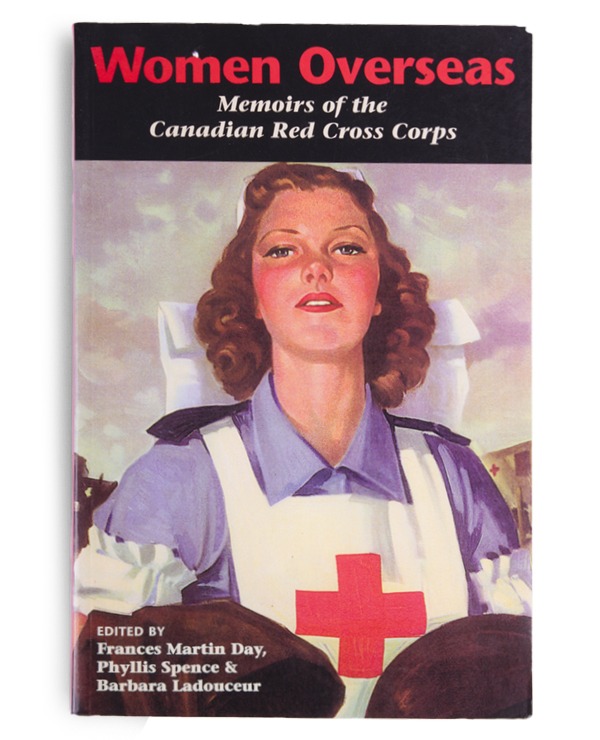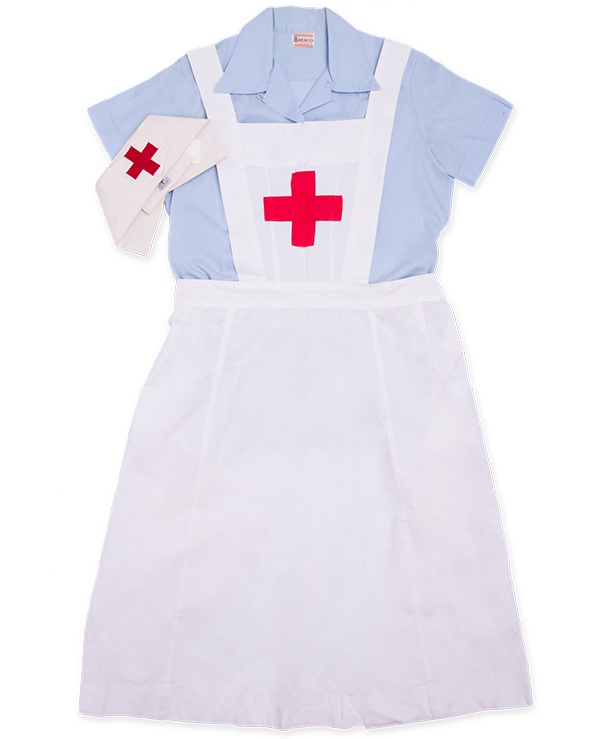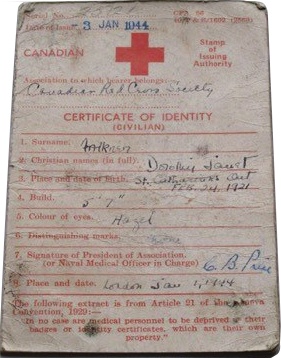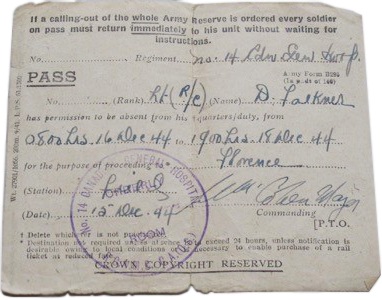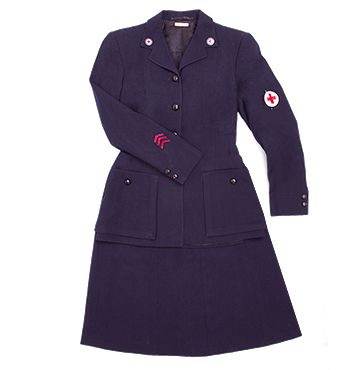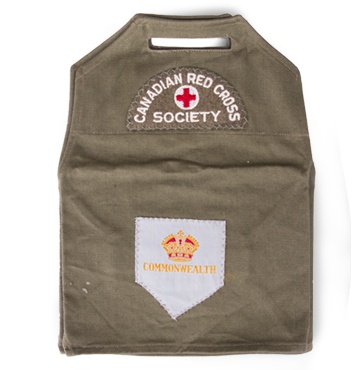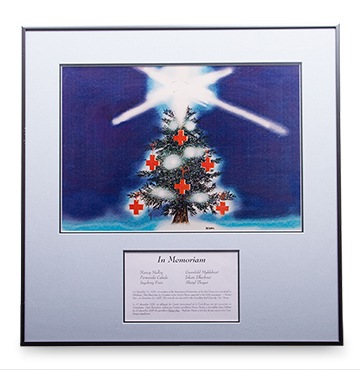"Women Overseas"
During the Second World War (1939-45) thousands of Canadian women enlisted in a uniformed, disciplined group of volunteers specially trained for wartime service, known as the Canadian Red Cross Corps. The book "Women Overseas" (Ronsdale Press, 1998) contains short memoirs of some of the members’ experiences in the Overseas Detachment of the Corps. One of the members included is St. Catharines, Ontario native Dorothy (née Falkner) Burgoyne Doolittle (O.D. #110), to whom this copy of the book belonged.
Created in 1940, the Corps offered women a chance to train and give voluntary service in one of four sections: Transport, Nursing Auxiliary, Food Administration, or Office Administration. All members wore a distinctive uniform and underwent training (such as orienteering and military drill) to help them function as a team. In Canada, Corps members gave thousands of hours of service in hospitals, blood clinics, Red Cross offices, canteens, and anywhere else their special skills were useful.
Dorothy Doolittle was one of the 641 Corps members to represent the Canadian Red Cross overseas during the war: she worked in England and Italy from 1943 to 1945. Overseas Detachment members like Dorothy did welfare work and occupational therapy in military hospitals, drove ambulances, cooked and served as hostesses in servicemen’s clubs, and did administrative work at Red Cross offices. A handful of members worked in Newfoundland, aiding sick, wounded, and torpedoed sailors as well as military personnel posted to the island.
"While we went over to give our services to the Red Cross, we gained much more in return."
Corps members in England experienced nightly bombing raids; those who followed the Allied advances into Italy and France with military hospitals suffered the dangers and privations of the battlefronts. (Dorothy experienced both.) Regardless of their posting, Corps members served with compassion, dedication, and skill. In her memoir, Dorothy mused on what this volunteer work meant to her: “While we went over to give our services to the Red Cross,” she wrote, “We gained much more in return.”
The Red Cross leaders who created the Corps envisioned these special volunteers as a group that could be called upon in case Canada was attacked by the enemy. Happily, Canada was spared such horrors during the war. Nonetheless, Corps members’ extensive training and readiness to serve make them forerunners of later Red Cross Emergency Services volunteers, prepared to respond in the event of any disaster.
During the Second World War (1939-45) thousands of Canadian women enlisted in a uniformed, disciplined group of volunteers specially trained for wartime service, known as the Canadian Red Cross Corps. The book "Women Overseas" (Ronsdale Press, 1998) contains short memoirs of some of the members’ experiences in the Overseas Detachment of the Corps. One of the members included is St. Catharines, Ontario native Dorothy (née Falkner) Burgoyne Doolittle (O.D. #110), to whom this copy of the book belonged.
Created in 1940, the Corps offered women a chance to train and give voluntary service in one of four sections: Transport, Nursing Auxiliary, Food Administration, or Office Administration. All members wore a distinctive uniform and underwent training (such as orienteering and military drill) to help them function as a team. In Canada, Corps members gave thousands of hours of service in hospitals, blood clinics, Red Cross offices, canteens, and anywhere else their special skills were useful.
Dorothy Doolittle was one of the 641 Corps members to represent the Canadian Red Cross overseas during the war: she worked in England and Italy from 1943 to 1945. Overseas Detachment members like Dorothy did welfare work and occupational therapy in military hospitals, drove ambulances, cooked and served as hostesses in servicemen’s clubs, and did administrative work at Red Cross offices. A handful of members worked in Newfoundland, aiding sick, wounded, and torpedoed sailors as well as military personnel posted to the island.
"While we went over to give our services to the Red Cross, we gained much more in return."
Corps members in England experienced nightly bombing raids; those who followed the Allied advances into Italy and France with military hospitals suffered the dangers and privations of the battlefronts. (Dorothy experienced both.) Regardless of their posting, Corps members served with compassion, dedication, and skill. In her memoir, Dorothy mused on what this volunteer work meant to her: “While we went over to give our services to the Red Cross,” she wrote, “We gained much more in return.”
The Red Cross leaders who created the Corps envisioned these special volunteers as a group that could be called upon in case Canada was attacked by the enemy. Happily, Canada was spared such horrors during the war. Nonetheless, Corps members’ extensive training and readiness to serve make them forerunners of later Red Cross Emergency Services volunteers, prepared to respond in the event of any disaster.

